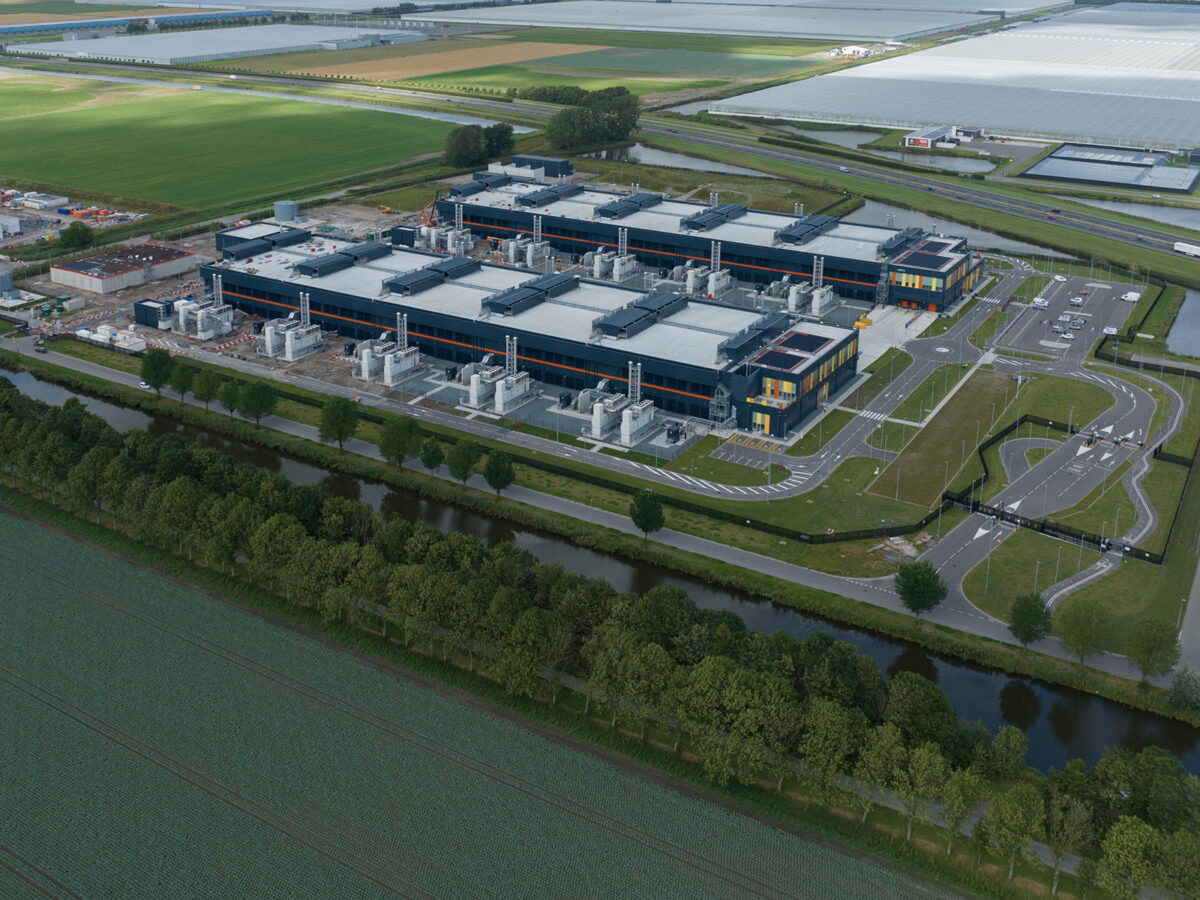
Aerial View of Data Center
Power grids today are under significant stress. Growing demand is a concern, as are rising outage rates.
Several initiatives are in place to address these issues, including future-proofing data centers. The goal of these initiatives is to develop more advanced energy consumption strategies, focusing on ways data centers can help balance the grid instead of increasing pressure.
Shifts in energy consumption will depend on reduced demand, especially during peak times, and greater grid stability moving forward. Strategies encouraging improvements, such as on-site energy generation and storage, could make all the difference over the coming decades.
Data Centers and Energy Usage: The Challenge
Data centers have high energy profiles. Growing demand from data centers is linked to artificial intelligence (AI) workloads, cloud computing, data storage, e-commerce growth, etc. These data centers are often geographically concentrated, so local power grids can experience immense strain.
In some regions, data center consumption accounts for 10% of the grid load, and that number is rising. One large data center requires the same amount of energy used to power around 876,000 typical households for a year. In some areas, these rates are even higher. Take Virginia, for example. In 2023, data centers used roughly 25% of total metered electricity consumption, the highest percentage nationally.
Data center IT capacity is expected to increase significantly from now until 2035. By then, power demand from US-based data centers could double. In response, fossil fuels are being reintroduced, which is slowing down or even reversing grid decarbonization for areas most affected.
Data centers need a lot of power, but how are they linked to the most pressing power grid challenges?
- Poor infrastructure, as many areas in the country are already operating at near or full capacity. It is no coincidence that these areas are home to data centers, including Silicon Valley, Northern Virginia, and Texas. This challenge will require significant investments and modernization strategies.
- Renewables are not a constant, reliable source of power. Data centers have heavy power needs, which cannot be sustained on renewables alone. Many are looking at hybrid solutions, including battery energy storage (BESS)/generator power systems. More flexible and consistent demand management strategies are also needed.
- Real-time data processing and AI will result in unpredictable, fluctuating power needs. Data centers must work with the grid’s capacity, especially during extreme weather events.
Data Centers and Energy Usage: Possible Solutions
As power providers create strategies to address escalating demands and power grid challenges, data centers must become part of the solution. Alternative, non-intermittent power sources are being explored, as are the methods available for saving, storing, and distributing power.
These high-demand facilities are asked to limit power use during peak times, create on-site power generation, and improve energy efficiency.
Here are some examples of what that might look like:
- Large-scale on-site power generation. Excess power could be sent back to the grid to help offset investments in power generation.
- Greater collaboration will help grid suppliers manage and maintain frequency, voltage, or power availability. However, few data centers have actively participated in this option, saying loads aren’t flexible or must be protected. In the future, data centers may not be able to opt-out.
- Commercial generators are another area where collaboration matters. Utility companies are pushing for new standards outlining how loads are transferred to and from this backup power solution.
- Load-shedding strategies and the use of on-site power focus on commercial generators, as well as UPS batteries.
- Using demand response and intelligent load management to relieve grid pressures is another option that Google is already doing.
Data Centers and Utility Companies Are Taking Action
Data centers are encouraged to consider some or all of the above to contribute to power management solutions and reduce the risks associated with outages, which are increasing in frequency and severity. Explore the reliable backup data center power solutions available today, including commercial generators, UPS systems, BESS, and other components required for complete power systems. Moving forward, both data centers and utilities must do their part. Data centers must be more flexible, collaborate, and invest in energy-efficient technologies.
Utilities are also responsible for embracing innovative solutions related to smart grid technology, energy storage, and demand response programs. After all, it’s not just about targeting power needs — utilities must work with data centers to help drive economic growth and sustainability in the future.
Related: Video of 3250kW Standby Generators to Texas Data Center
Global Power Supply: The Power Management Solutions Partner You Need
For now, many of the proposed data center power solutions are voluntary. However, new regulations and policies may change that over the next decade. When combined with concerns surrounding extended outages, data centers are looking into solutions today — before they become mandatory
By partnering with Global Power Supply (GPS), you can source everything your data center needs to meet grid demands, including generators, industrial UPS systems, BESS, power distribution units, and more. These steps will ensure you’re a leader in power management solutions while ensuring continuous operation.
GPS is known for offering tailored power solutions, which data centers need to consider. Whether you are looking to get online faster, meet local regulations, or reduce risks related to outages, GPS can help. Learn more about how GPS helped an AI data center obtain reliable power and check out available power services.
Have questions? Contact our team today!